Belt-tightening hits International Geneva
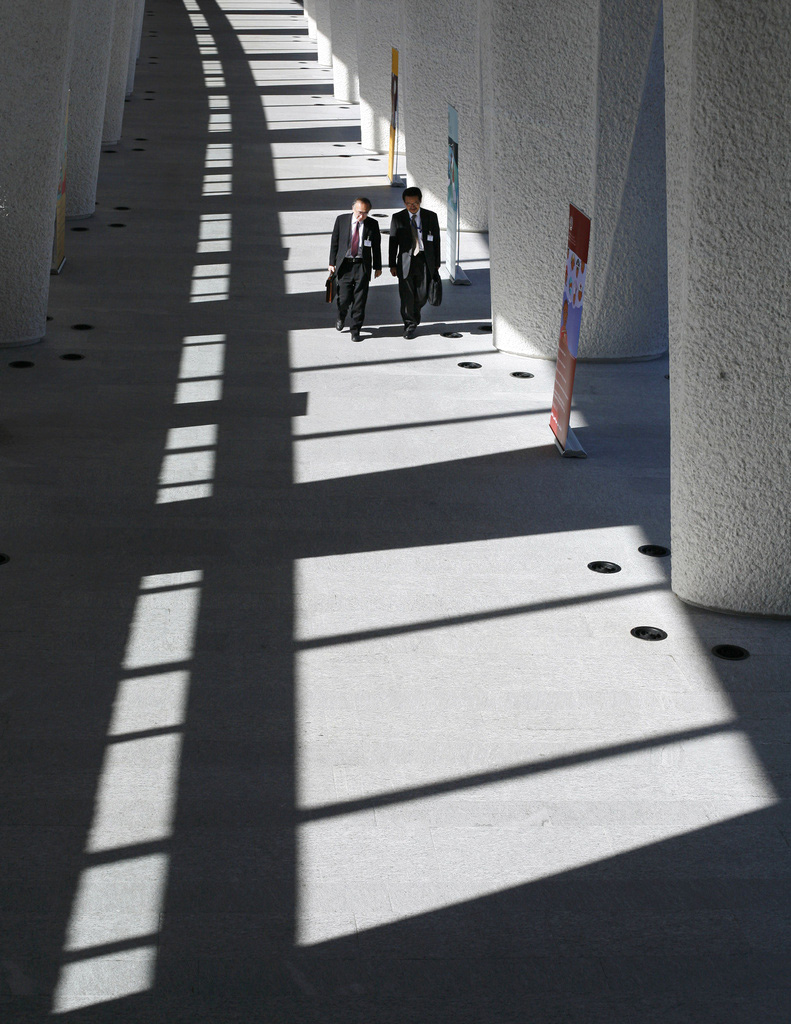
Government belt-tightening measures and fluctuating exchange rates are casting a shadow over International Geneva, home to thousands of staff.
While some Swiss officials downplay the recent wave of cutbacks and job losses among several of the 32 international agencies based in the western Swiss city, local cantonal authorities are watching events closely.
Many agencies are being stretched to breaking point due to financial pressures resulting from the recent economic crisis. Last week United Nations human rights chief Navi Pillay made a passionate plea for more cash to cope with a surge in demands on her office in the wake of the Arab Spring.
“The situation is threatening to become chronic,” she told reporters in Geneva.
The Office of the UN High Commissioner for Human Rights needs $141 million (SFr117 million) in voluntary contributions on top of its UN allocation this year. But donors are only ready to give between $98.7 million and $103.4 million, said Pillay.
In May, the World Health Organisation (WHO) announced it was slashing $1 billion from its $4.8 billion 2012-2013 budget and cutting 300 jobs at its Geneva headquarters because of financial constraints in donor countries.
Other Geneva-based organisations such as the International Committee of the Red Cross (ICRC) are also experiencing financial difficulties. The ICRC is cutting SFr85 million from its SFr1 billion 2011 budget and 32 jobs at a time when demand for humanitarian assistance has reached an unprecedented level.
According to UN expert Jussi Hanhimäki, similar announcements could be in the pipeline.
“It’s likely that there will be more cutbacks,” the Geneva Graduate Institute professor told swissinfo.ch. “It’s very possible that we will hear something from UNHCR in the next six to eight months but maybe not as big as WHO.”
“It’s the kind of trend that since 2008 is inevitable,” he added.
Realistic budgets
The UN, whose European headquarters is based in Geneva, is also going through hard times. UN Secretary-General Ban Ki-moon has asked officials to prepare a budget for the 2012-2013 period that is three per cent lower than the current $5.4 billion.
“We have to be realistic. Even the richest countries are tightening their belts and reducing their budgets. The UN should be no less disciplined,” Corinne Momal-Vanian, the UN’s communication director, told Le Temps newspaper. “These budget reductions will translate into job losses in New York, Geneva and elsewhere.”
Momal-Vanian said it was too early to say how many jobs were at risk as the 2012-2013 budget will be adopted in December, but “they will be less important than those announced by WHO”.
Non-governmental organisations in Geneva are also anxiously monitoring the situation, especially those who receive funds from governments. But not everyone is suffering.
The International Labour Organisation (ILO) has lowered its 2012-2013 budget by five per cent to $745 million but no job cuts are planned.
The European Organisation for Nuclear Research (Cern), the World Trade Organisation (WTO) and the World Intellectual Property Organisation (Wipo) are all financially stable, as is the World Meteorological Organisation (WMO).
Strong franc
One unique issue for Geneva-based agencies is dealing with the strength of the Swiss franc, which has gained 25 per cent in value against the euro and the dollar over the past four years.
Many budgets are calculated in dollars and contributions are received in dollars or euros, but Geneva offices have to assume many running costs such as salaries in Swiss francs.
The 168 UN permanent diplomatic missions, which are financed by their individual governments either in their own currencies or in dollars, “are especially hit by the strong franc”, explained Dante Martinelli, Swiss ambassador to the UN in Geneva.
But the Swiss diplomat remains optimistic about Geneva’s long-term future, as does Olivier Coutau, a cantonal delegate in charge of International Geneva relations.
“I have the impression that it’s not entirely new. We’re going through a difficult period and there is a need for savings and jobs are being threatened but if you look long term Geneva’s pulling power remains very strong,” said Coutau.
Closely watching
“We have never had so many international cooperation actors. Another indicator is construction. Organisations such as WTO, Wipo, ICRC and Cern are all investing in infrastructure,” he added.
The local authorities are watching developments closely, especially as International Geneva is worth around SFr3 billion a year to the canton.
Geneva’s Economic Minister Pierre-François Unger told Le Temps that budget restrictions and job cuts “worried the government but were not a surprise” and were just “passing difficulties”.
But Finance Minister David Hiler was more cautious: “If the next economic crisis, expected in 2015 according to the cycles, is very brutal and results in a drop in the dollar, that could cast doubt over International Geneva.”
French-speaking Geneva is at the western end of Lake Geneva, surrounded on almost all sides by France. The canton has 103 kilometres of borders with Switzerland’s neighbour and just 4.5 kilometres with the rest of the country.
The city itself has 185,000 inhabitants, while the canton has 453,439 (2008). The metropolitan Geneva area (which includes nine other towns) covers most of the canton and spreads across into France (population 730,000). Some 40 per cent of the Geneva population is foreign.
Geneva is home to the headquarters of 32 international organisations, such as the World Health Organization, the World Trade Organization and the International Committee of the Red Cross. “International Geneva”, as it is known, is worth around SFr3 billion a year to the canton.
In all, some 40,000 international diplomats and civil servants are based in Geneva; in addition there are around 2,400 staff working for 250 non-governmental organisations. Around 8,500 staff work for the United Nations family in Geneva, which is the largest concentration of UN personnel in the world. There are also 168 permanent diplomatic missions to the UN.
The Swiss government last week increased its financial support to assist organisations operating in Geneva and for international conferences by SFr54 million to SFr118 million.
Geneva is facing stiff competition to host international organisations and NGOs from cities such as Vienna, The Hague, Copenhagen, Bonn, Budapest and Madrid as well as new actors such as Singapore, Abu Dhabi, Dubai, Doha and Seoul.

In compliance with the JTI standards
More: SWI swissinfo.ch certified by the Journalism Trust Initiative

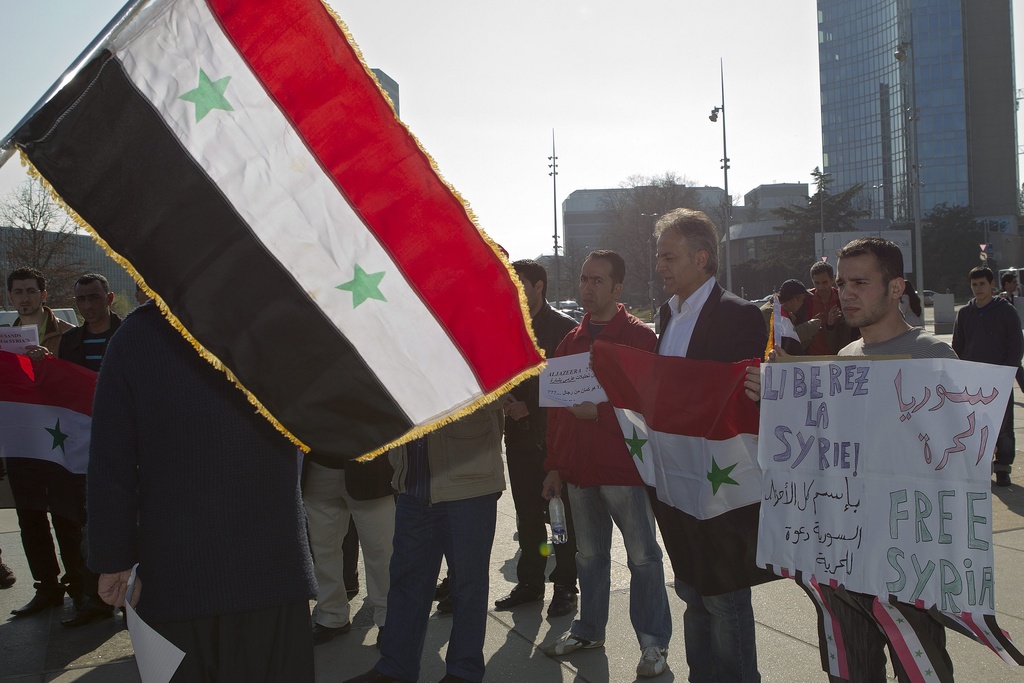
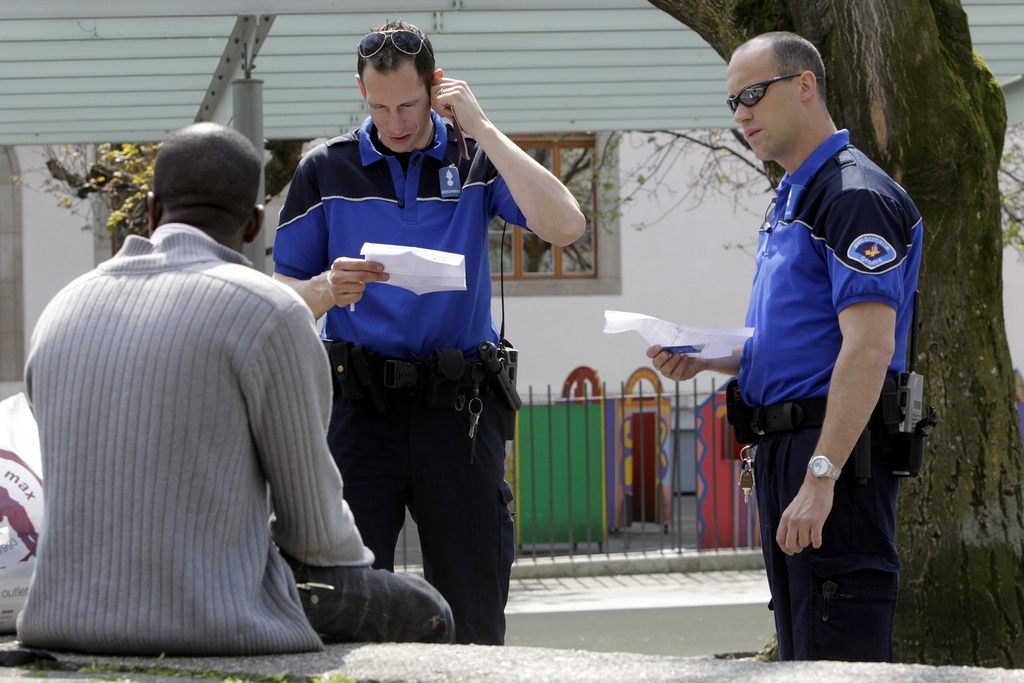
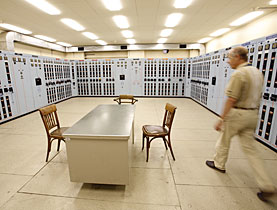
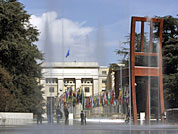
You can find an overview of ongoing debates with our journalists here. Please join us!
If you want to start a conversation about a topic raised in this article or want to report factual errors, email us at english@swissinfo.ch.